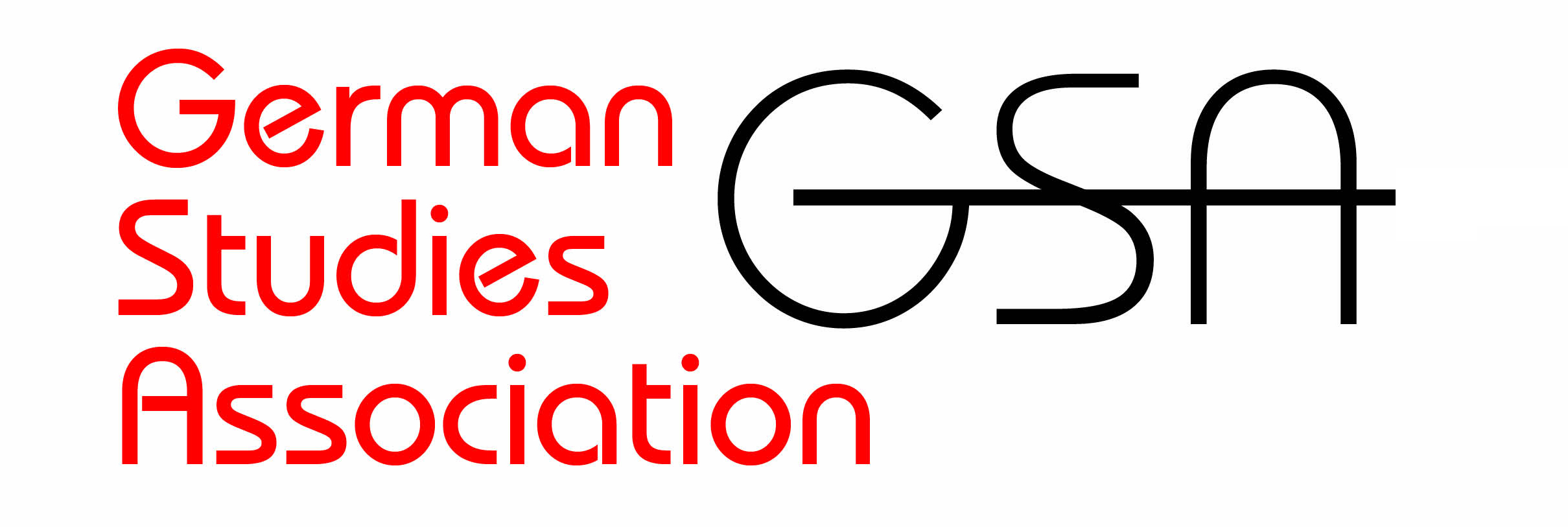December 15, 2022
Call for Applications: GSA Emerging Scholars Workshop (ESW) 2023
We are excited to issue this call for the next Emerging Scholars Workshop (ESW) to be hosted at the 47th German Studies Association Conference in Montréal, Canada, from October 5–8, 2023. This workshop is exclusively for graduate students.
The Emerging Scholars Workshop will run parallel to the established seminars and in addition to regular conference sessions and roundtables. For general conference information, see https://www.thegsa.org/conference.
Over the past decade or so, graduate programs across the country have contracted. Fewer graduate students now encounter fewer regular graduate courses that have often also become more general in content in order to produce satisfactory enrollment. As a result, much of the specialized but crucial field training has moved into one-on-one tutorials and directed readings. The ESW seeks to give the up-and-coming cohort of scholars access to the leading faculty in their field, increase the advice and mentoring they receive, and allow them to come together for sustained professional conversations. The goal is to enable the next generation of Germanists to produce their best possible work, be competitive across fields, and contribute to the vitality, relevance, and productivity of our field at large.
There will be one ESW session hosted by two instructors:
“German Studies Unbound” facilitated by Randall Halle, University of Pittsburgh and Jennifer Allen, Yale University
Transformations in the landscape of higher education have curtailed opportunities for graduate training in German Studies; they have also shrunken the academic job market. One could view these constraints as a crisis in the field. But we might also view them as an occasion to rethink the parameters of German Studies at a moment when Germany continues to play a prominent role in many global arenas—politically, culturally, economically, socially. This seminar aims to bring together young scholars from a range of disciplines, focused on a range of time periods, and using a range of methodologies, who are interested in discussing the many ways we might advance a German Studies “unbound:”
- “unbound” within the context of our own research: our seminar will give students an opportunity to discuss their individual research investments and to consider how to push the limits of their subfields by engaging multiple methodologies and sources;
- “unbound” within the context of our disciplines: our seminar will examine some of the most promising trajectories within the broad field of German Studies and think about how interdisciplinary collaboration could advance those trajectories;
- and “unbound” with regard to the place of German Studies in the world beyond academia: our seminar will create a platform for exploring concrete possibilities for reaching and impacting diverse audiences with our work.
We intend these discussions as steps on the path toward developing the field in productive, ethical, public-facing, and sustainable ways. To prepare for our discussions, a modest amount of advanced reading and a short writing assignment of 200-250 words (to be shared with other participants by September 1) will be required.
The ESW is open to students enrolled in a graduate program. Graduate students at all levels from all disciplines under the broad umbrella of German Studies (literature, history, cultural studies, art history, musicology, anthropology, Queer Studies, Black Studies, architectural history, political science, sociology, and others) working on all time periods are invited to apply.
The workshops will convene parallel to the regular seminars, Friday through Sunday, 8:00–10:00am. Participants must commit to participate in all three workshop meetings. Please note that workshop participants will not be allowed to submit a paper in a regular panel session. They may, however, take on one additional role in the conference independent of their role in the workshop, either as a moderator of another session or as a participant in a roundtable. ESW participation counts as full GSA conference participation and may be listed on a CV accordingly.
To apply, please submit a well-crafted cover letter of no more than one single-spaced page in which you introduce yourself and your scholarly interests. Entry-level graduate students should share their research focus and plans for their MA-thesis or dissertation as they currently stand. Advanced graduate students should address their dissertation projects. The letter should also outline your interest in the subject of this year’s workshop and how you expect to benefit from participation.
The deadline for application submissions is Sunday, January 29, 2023, by 11:59 pm PST. Please email your cover letter to emergingscholarsworkshop@gmail.com. Late applications will not be considered.
Following the submission of applications, the ESW Committee, in conjunction with the workshop’s leaders, will select the participants. Applicants will be notified of the committee’s decisions by mid-February 2023. Because of the seminar’s small size, it will not be possible to admit all applicants. Students who are not admitted will still have the opportunity to apply to one of the regular GSA seminars or sessions.
As you consider applying to the ESW, we would like to highlight two sets of GSA funds available to help offset the costs of attending the annual conference: the GSA Conference Community Fund and the GSA Travel Grants.
The ESW Committee consists of:
Please direct inquiries to the ESW Committee and workshop leaders at emergingscholarsworkshop@gmail.com. We look forward to receiving your application!
